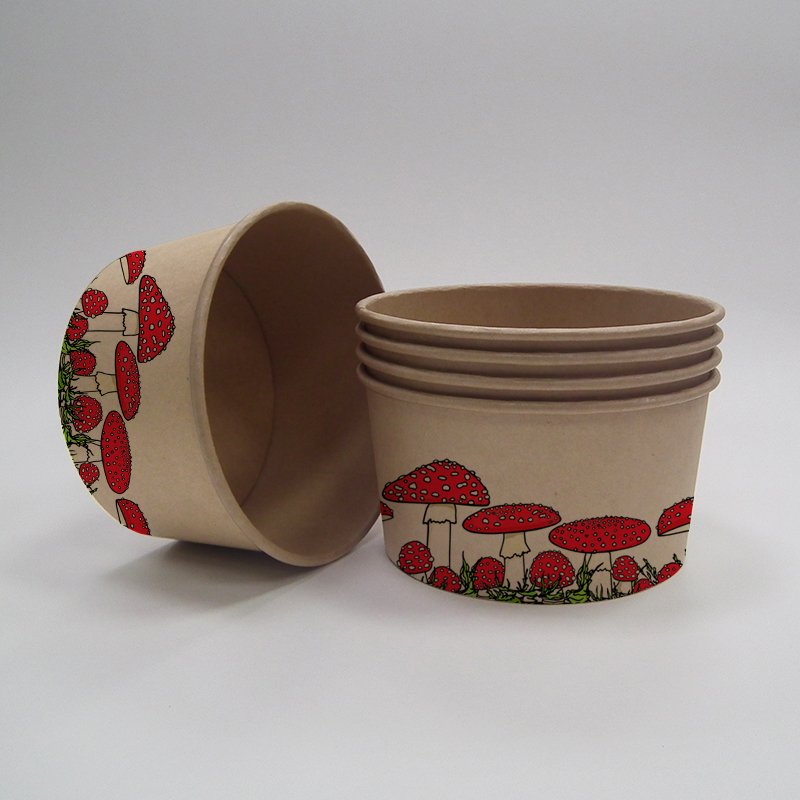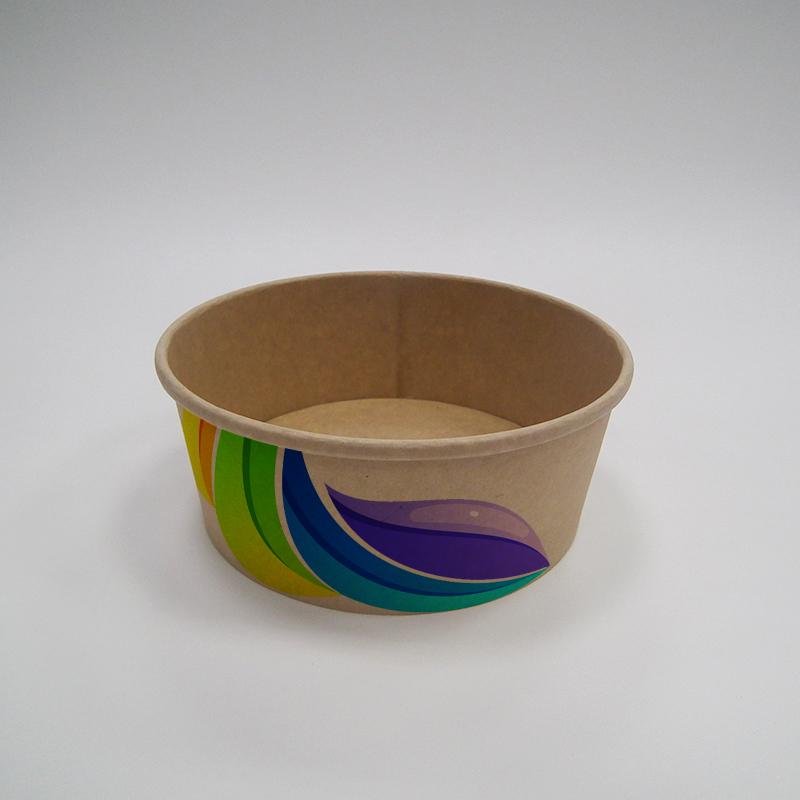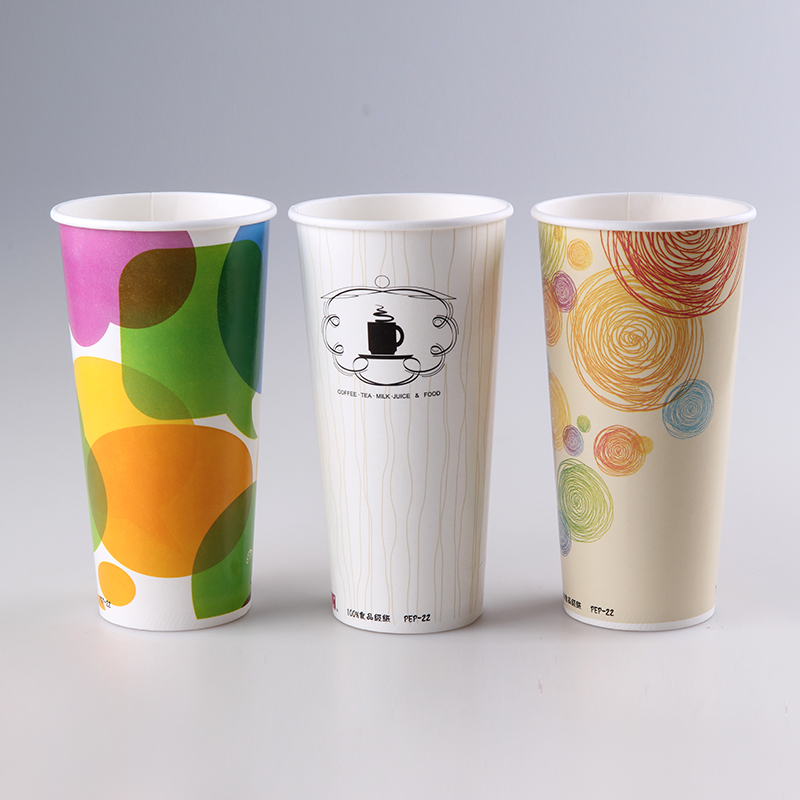
In today’s fast-paced world, takeout and food delivery services have become an integral part of modern dining habits. As consumers prioritize convenience without compromising sustainability, businesses are seeking eco-friendly alternatives for packaging. Enter Kraft paper bowls, a versatile and environmentally conscious option gaining popularity in the food industry. These takeaway paper bowls offer a myriad of advantages, making them a preferred choice for takeout services. Let’s delve into the numerous benefits and advantages of using Kraft paper bowls for takeout.
Environmental Friendliness
Kraft paper bowls are crafted from biodegradable and compostable materials, primarily derived from sustainably sourced paper pulp. Unlike conventional plastic containers, these bowls decompose naturally, reducing their environmental impact. Their eco-friendly nature aligns with the growing consumer demand for sustainable packaging solutions, promoting a greener dining experience.
Versatility in Usage
One of the significant advantages of Kraft paper bowls is their versatility. They come in various sizes and shapes, suitable for a wide range of food items. Whether it’s soups, salads, rice dishes, or desserts, these bowls accommodate different cuisines, making them a versatile choice for diverse takeout menus.
Leak-Resistance and Durability
Ecofriendly Kraft paper bowls are designed with a protective lining that enhances their resistance to leaks and grease. This feature is particularly crucial when packaging saucy or oily dishes, ensuring that the container remains sturdy and leak-proof during transport. Despite their lightweight nature, these bowls maintain their structural integrity, preventing spills and maintaining food quality.
Microwave and Freezer Compatibility
The convenience of reheating takeout meals without transferring them to another container adds to the appeal of Kraft paper bowls. They are microwave-safe, allowing customers to warm their food directly in the bowl, eliminating the need for extra dishes and simplifying the dining experience. Additionally, these bowls can withstand low temperatures, making them suitable for freezing meals for later consumption.
Customizability and Branding Opportunities
Businesses have the flexibility to customize Kraft paper bowls with their logos, branding messages, or colorful designs. This customization not only reinforces brand visibility but also creates an appealing presentation for the customers. The ability to showcase a brand’s identity on the packaging enhances the overall dining experience and fosters brand loyalty.
Cost-Effectiveness
Compared to some alternative eco-friendly packaging options, Kraft paper bowls often prove to be cost-effective for businesses. Their affordability combined with their positive environmental impact makes them a practical choice for establishments looking to balance sustainability and budget constraints.
Consumer Perception and Demand
As consumers become increasingly conscious of their environmental footprint, the use of eco-friendly packaging contributes to a positive brand image. Offering takeout in Kraft paper bowls aligns with the values of environmentally conscious customers, potentially attracting and retaining a loyal customer base.
Sustainability Initiatives and Future Outlook
The shift towards sustainable packaging, including the use of Kraft paper bowls for takeout, reflects an ongoing industry-wide commitment to reducing waste and environmental harm. Many restaurants and food establishments are adopting these eco-friendly solutions as part of their sustainability initiatives. This trend not only satisfies consumer preferences but also aligns with global efforts to combat plastic pollution and promote a circular economy.
Conclusion
In conclusion, the advantages of using Kraft paper bowls for takeout extend beyond mere convenience. Their eco-friendly composition, versatility, durability, microwave and freezer compatibility, branding opportunities, cost-effectiveness, and alignment with consumer values make them an appealing choice for food businesses aiming to elevate their packaging solutions.
As the world embraces sustainable practices, the adoption of Kraft paper bowls for takeout aligns with the broader movement toward eco-consciousness. By leveraging the benefits of these bowls, businesses can not only meet consumer demands for convenient, sustainable packaging but also contribute positively to environmental conservation efforts.
In essence, Kraft paper bowls represent a pivotal step in the food industry’s journey toward a greener, more sustainable future. Their multifaceted advantages and positive impact on both businesses and the environment make them a compelling choice for takeout services seeking to make a difference.
The use of Kraft paper bowls for takeout is not merely a trend but a conscious decision towards a more sustainable and responsible way of serving and enjoying food on the go.







